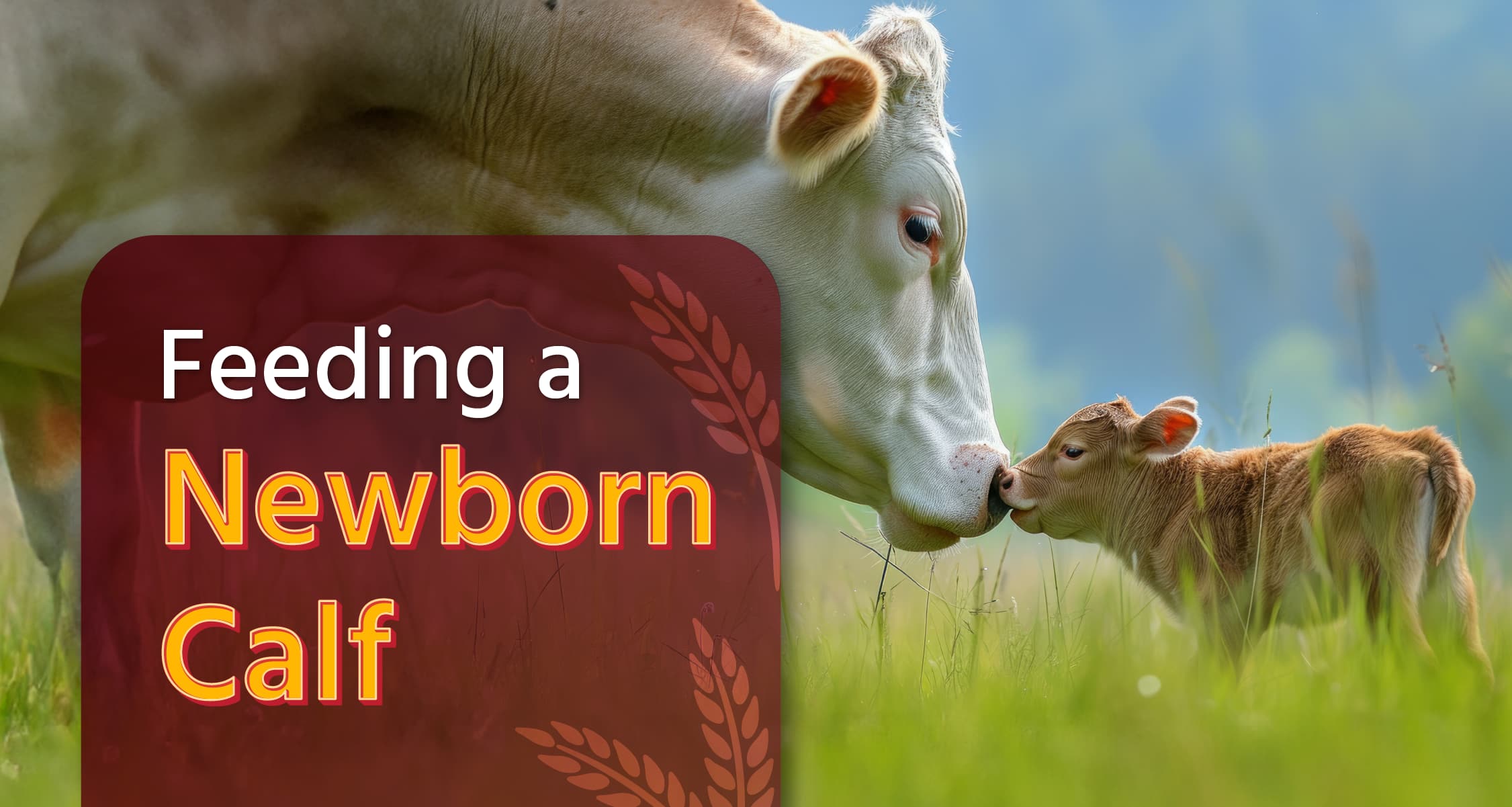Feeding of Calves

Feeding of Calves
The period from birth to three months of a calf's life is crucial. According to statistics, the mortality rate of calves aged 0 to 3 months is higher. The main reason for this is a lack of proper care. It is essential to provide adequate care during this time for the better health of the calves. Calves have very low disease resistance at birth, making them susceptible to various illnesses. Proper care will not only ensure the well-being of the calves but also reduce expenses incurred due to illnesses. Let's gather information related to the care of newborn calves from here.
How to Take Care of Calf?
Importance of Colostrum for Newborn Animals
After birth, feed the newborn calf approximately 1 liter of its mother's first milk within 1 hour. This milk is commonly known as colostrum or "khees." Compared to regular milk, colostrum contains higher levels of vitamins, minerals, proteins, fats, and energy. Consuming colostrum enhances the calf's immune system.
How much Colostrum should be fed to Newborn Animals?
- For newborn calves/goats, feed 1-1 liter of colostrum three times a day.
- Cows and buffalo calves should be given colostrum for the first three days after birth. For better health of newborn calves, ensure continuous feeding of colostrum for three consecutive days
How to Make Artificial Milk?
- Sometimes due to various reasons, cows and buffaloes are unable to produce milk. In such cases, artificial milk can be fed to the calf.
- To prepare artificial milk, mix 500 ml of warm water with 500 ml of milk, 1 egg, and 3 ml of castor oil. Feed this prepared artificial milk to the calf once. By following this method, you can ensure proper nutrition for the calf even when natural milk production is not possible.
Calf's Diet: From 3 Days to 30 Days After Birth
- From the fourth day after birth until 30 days later, it is essential to feed the calf 10% of its weight in milk.
- If for any reason there is a shortage of milk to feed the calf, milk replacer can be provided starting from 7 days after birth.
Medicine to Eliminate Worms in Newborn Animals
- Administer wormicide medicine to newborn animals from the 7th to the 10th day after birth.
- Give the animal 10 gm of Piperazine, a medicine known to eliminate worms.
What should be the Diet of a 15-day-old Calf?
- When calves reach the age of 15 days, it's time to give them to Calf Starter feed.
- You can easily prepare Calf Starter feed at home. To make 100 kg of Calf Starter feed, you will need 42 kg of grains (such as maize, barley, etc.), 35 kg of khali (peanut, cottonseed, mustard cake, etc.), 10 kg of chokar (wheat bran, rice bran, etc.), 10 kg of fish meal, 2 kg of mineral mix, and 1 kg of common salt. Mix these ingredients thoroughly to prepare the feed mixture.
- Feed the calf only 50 gm of Calf Starter per day initially. Gradually increase the quantity to 100 gm. Feed this to the calf from the 15th day until one month.
- When the calf turns one month old, reduce the quantity of milk to 1 to 1.5 kg.
- Afterward, increase the quantity of Calf Starter every week from 100 to 125 gm.
- When the calves reach 45 days old, administer deworming medicine to them again.
What do you include in the diet of newborn calves? Please share your feedback through comments. If you found the information in this post helpful, please like it and also share it with other farmers who manage livestock. This will help and benefit them to improve the care of newborn animals. For other interesting and informative insights related to animal husbandry, follow the 'Pashu Gyan' channel immediately. Apart from this, you can also get expert advice and information by contacting DeHaat's toll-free number 1800-1036-110.
Frequently Asked Questions (FAQs)
Q: What should be fed to young calves?
A: Initially, feed young calves colostrum. After that, they should be given milk for one month. From 15 days after birth, include calf starter in their diet.
Q: What should be done after a calf is born?
A: If the membrane covering the calf is not broken at the time of birth, it should be removed immediately. Clean the mouth, nose, eyes, and ears of the calf soon after birth. Then, after cleaning its body with a clean and dry cloth, place the newborn animal in front of its mother.
Q: How to take care of newborn calves?
A: Newborn animals are prone to various infections. There is a risk of diseases such as navel illness, diarrhea, pneumonia, and calf diphtheria in calves. To prevent these diseases, clean the animal shelter regularly. Ensure clean food and water for newborn animals. If you notice any signs of lethargy, fever, or illness, immediately contact your nearest animal healthcare provider or veterinary doctor.
जारी रखने के लिए कृपया लॉगिन करें

फसल चिकित्सक से मुफ़्त सलाह पाएँ
